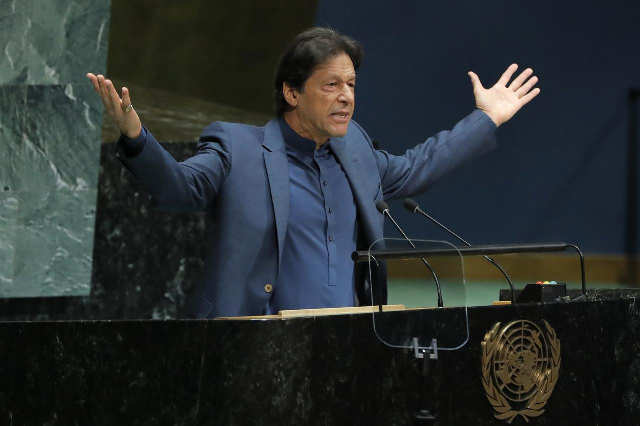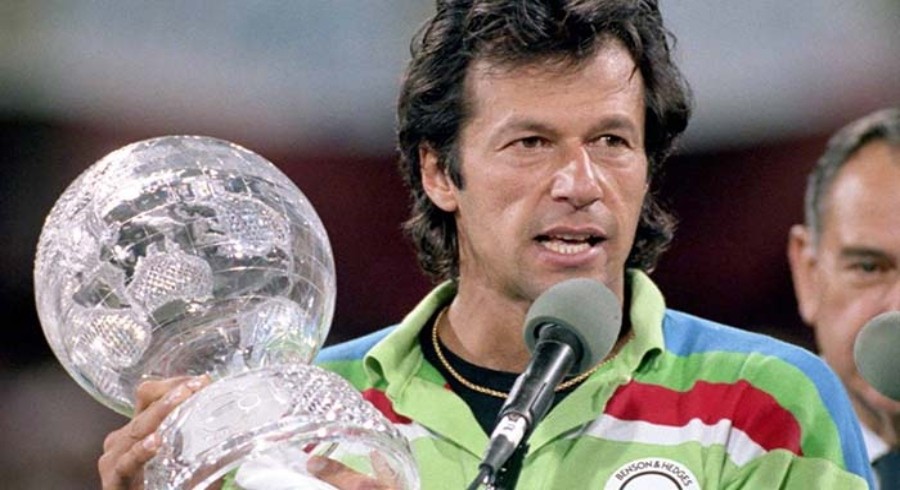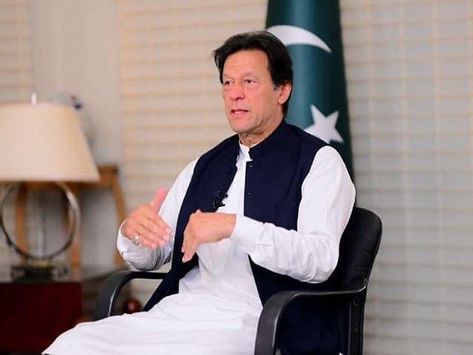Imran Khan, a name synonymous with cricketing glory and political leadership, has a background rooted in determination, excellence, and a deep love for his homeland, Pakistan. His journey from a young boy with dreams to a global icon is a testament to his unwavering commitment to success and his passion for bringing positive change to his country. Imran Khan Biography: Cricket and Politics Career
Early Life and Education:
Imran Khan was born on October 5, 1952, in Lahore, Pakistan, to a well-educated and affluent family. His father, Ikramullah Khan Niazi, was a civil engineer, while his mother, Shaukat Khanum, hailed from a prominent Pashtun family. Imran was the only son among his siblings, and his early years were marked by the influence of his parents’ values and principles.
His developmental years at the institution established the bedrock for his inquisitiveness and his unwavering dedication to achieving excellence in all his pursuits.

Imran Khan Cricket History
Mastering the Art of Fast Bowling:
Imran Khan’s prowess as a fast bowler was his hallmark. Renowned for his smooth, fluid run-up and natural pace, he had the ability to extract both swing and seam movement from the ball. His distinctive action and athleticism allowed him to generate considerable pace while maintaining control and accuracy. Khan’s effectiveness with the ball earned him respect not only from opponents but also from fellow cricketers and fans worldwide.
Throughout his career, he honed his craft, adapting to different conditions and surfaces, and demonstrating his versatility by excelling in both test matches and One Day Internationals (ODIs). His remarkable feat of taking over 300 wickets in both formats attests to his longevity and exceptional skill set.
Leadership Par Excellence:
Imran Khan’s impact extended beyond his individual performances; it was his leadership on and off the field that truly set him apart. He became the captain in 1982 and led the team to several notable victories, including a series win against India in 1986-87.
However, his crowning achievement as a captain was undoubtedly the 1992 Cricket World Cup. Khan’s strategic acumen, motivational prowess, and ability to unite a diverse team resulted in Pakistan’s triumph in the tournament. The World Cup victory not only brought pride to the nation but also solidified Imran Khan’s legacy as a cricketing hero.
Legacy and Influence:
Imran Khan’s cricketing heritage transcends mere statistics and honors. He served as an inspiration for an entire generation of cricketers, imparting to them the principles of discipline, unwavering determination, and the relentless pursuit of greatness. His leadership approach and dedication to fair play left an enduring impression on the sport, leaving an indelible influence on forthcoming captains and players across the globe.
Beyond the boundary, Khan’s influence is also evident in his philanthropic efforts. The establishment of the Shaukat Khanum Memorial Cancer Hospital & Research Centre by him serves as a tangible testament to his unwavering dedication to effecting positive change within society. This philanthropic initiative exemplifies his resolute commitment to contribute, leaving an indelible mark on the lives of those who require assistance and embodying his determination to create a meaningful impact.

Imran Khan Political History
The inception of Pakistan Tehreek-e-Insaf (PTI):
Imran Khan’s entry into the realm of politics was characterized by the establishment of the Pakistan Tehreek-e-Insaf (PTI) in 1996. Motivated by a vision to confront corruption, inequality, and the existing status quo, Khan aimed to offer an alternative to the conventional political entities that had long held sway over Pakistan’s political arena. PTI’s platform struck a chord with a generation yearning for transformation, openness, and authentic representation.
Khan’s background as a cricketing hero and his reputation for integrity and determination lent credibility to his political endeavor. However, his transition from sports to politics was met with skepticism and challenges from political opponents and critics who doubted his ability to navigate the complexities of governance.
The Struggle for Political Relevance:
Imran Khan’s early political years were characterized by perseverance through adversity. While PTI gained traction among the youth and urban educated class, it faced an uphill battle against established political forces. Khan’s dedication to building a grassroots movement involved mobilizing supporters, conducting rallies, and articulating a vision that resonated with a diverse cross-section of Pakistani society.
Throughout the late 1990s and early 2000s, Khan’s political fortunes fluctuated, with PTI facing setbacks in national elections. Despite these challenges, Khan’s commitment to his vision and his ability to connect with the concerns of ordinary citizens kept his political ambitions alive.
Transformation and Political Ascendancy:
Khan’s political trajectory experienced a substantial shift in the buildup to the 2013 general elections. PTI’s “Naya Pakistan” (New Pakistan) vision, focused on combating corruption, initiating economic reform, and advocating for social justice, gained considerable traction. Khan’s impassioned speeches and fervent calls for change struck a chord with a population disillusioned by years of political impropriety and ineffectiveness.
The 2013 elections marked a turning point for PTI, as the party emerged as the second-largest in terms of popular vote. Though PTI did not form the federal government, Khan’s influence had grown substantially, signaling a shifting political landscape and the increasing appeal of his agenda.
The Journey to Prime Ministership:
Imran Khan achieved his ultimate political victory during the 2018 general elections. Following years of relentless dedication, PTI secured a majority in the National Assembly, resulting in Khan’s appointment as the 22nd Prime Minister of Pakistan. His rise to authority validated his enduring commitment to effecting change over the course of decades and delivering on his pledge to steer the country in a fresh direction.
As Prime Minister, Khan’s policy focus extended to addressing economic challenges, improving governance, and advancing social welfare programs. Initiatives such as the Ehsaas Program, designed to alleviate poverty and uplift marginalized communities, demonstrated Khan’s commitment to realizing his vision of a more equitable Pakistan.
Challenges and Global Engagement:
Khan’s political journey has not been without its share of challenges. Leading a country marred by economic difficulties, security concerns, and foreign policy complexities required a delicate balancing act. His efforts to mend relationships with neighboring countries, particularly India, have showcased his commitment to regional stability and cooperation.

Imran Khan’s Journey of Shaukat Khanum Hospital
The trajectory of the Shaukat Khanum Memorial Cancer Hospital & Research Centre stands as an extraordinary narrative marked by unwavering determination, profound compassion, and an unrelenting commitment to a noble vision. Established by the renowned cricketer-turned-statesman, Imran Khan, this institution has surpassed its role in healthcare, emerging as a tangible embodiment of hope and a guiding light of advancement for numerous individuals not only in Pakistan but also beyond its borders.
Inception and Purpose:
The inception of Shaukat Khanum Hospital dates back to the early 1990s when Imran Khan was deeply affected by the suffering of cancer patients in Pakistan. In 1994, Imran Khan established the Shaukat Khanum Memorial Trust (SKMT) to spearhead this ambitious endeavor.
A Pathway of Challenges:
The path toward realizing the hospital’s vision was marked by a series of hurdles. Imran Khan, in collaboration with a team of devoted professionals, initiated an unwavering effort to gather funds for both the construction and operation of the hospital. The substantial financial demands prompted innovative fundraising initiatives, encompassing events like celebrity cricket matches and nationwide appeals for contributions.
Turning Dreams into Reality:
Despite the obstacles, Imran Khan’s determination and the overwhelming support of the community propelled the hospital’s development. In 1994, the foundation stone was laid for the first Shaukat Khanum Memorial Cancer Hospital & Research Centre in Lahore. This marked a pivotal moment in Pakistan’s healthcare landscape, as the hospital aimed to provide state-of-the-art cancer diagnosis, treatment, and research facilities, all while ensuring that treatment remained free for those who could not afford it.
Expanding Horizons:
The achievement of the Lahore Hospital paved the way for the inception of a second facility in Peshawar, formally inaugurated in 2015. This strategic expansion significantly broadened the scope of Shaukat Khanum Hospital’s services, extending its reach to the Khyber Pakhtunkhwa province.
A Legacy of Care and Compassion:
Today, the Shaukat Khanum Memorial Cancer Hospital & Research Centre is not just a hospital but a beacon of hope for cancer patients and their families. It stands as a testament to Imran Khan’s enduring commitment to serving humanity, his ability to translate a vision into reality, and his unwavering belief in the power of collective action. Imran Khan Biography: Cricket and Politics Career


